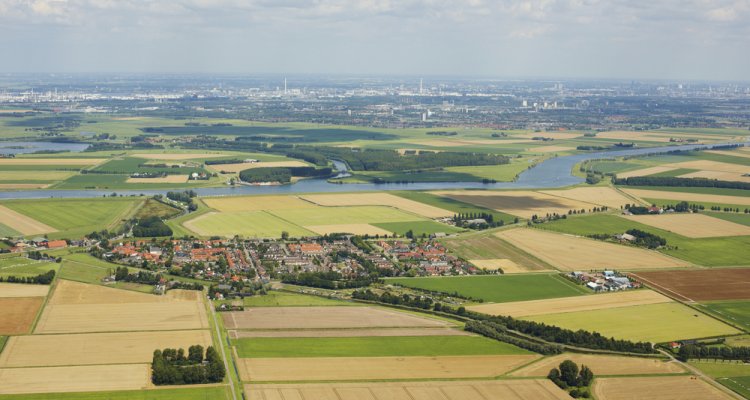
Research into the impacts of COVID-19 on the agriculture sector
The corona crisis has had serious economic impacts. These impacts have been widely felt, including by agricultural and horticultural businesses in the Netherlands. The lockdown and measures taken all over the world in response to the coronavirus (COVID-19) outbreak continue to have profound consequences for businesses. But it’s not always entirely clear how great the impact is, or will be. Wageningen Economic Research is keeping a close eye on this with ongoing research.
From the very first days of lockdown in the Netherlands, researchers at Wageningen Economic Research have been studying and analysing the consequences of corona measures for the Dutch agriculture and horticulture sectors. They are doing this by drawing on their data and expertise of the market and how the sectors operate, and by then combining this with business-specific models. Various short-term studies and medium to long-term research projects are revealing the damage that has been done and what the potential bottlenecks are for businesses and business processes.
Short-term sector analyses
The initial effects of the lockdown became evident in early March among various agricultural and horticultural businesses. The measures required to protect public health caused serious market disruption in a number of sectors. This led to a decline in business revenues and therefore of income and may even have led to some bankruptcies.
The Ministry of Agriculture, Nature and Food Quality (LNV) asked Wageningen Economic Research to look at different types of businesses and provide an insight into their monthly turnover, average incomes, and capital position and distribution in relation to their size. The businesses analysed by the researchers included:
- Floristry businesses
- Pot plant and bedding plant businesses
- Flower bulb businesses
- Tree nursery businesses
- Greenhouse vegetable businesses (subdivided into tomatoes, peppers and cucumbers)
- Field vegetable crop businesses
- Fruit businesses
- Arable farming businesses and specifically businesses producing ware potatoes
Businesses that mainly act as suppliers to the catering industry have been hit particularly hard by the widespread closure of hospitality outlets and the ban on events and gatherings. This has led to substantial declines in turnover. “Floriculture businesses saw the export of plants and flowers virtually grind to a halt at a time of year when Easter and Mother's Day usually account for their highest turnover,” says researcher Harold van der Meulen. “This led the government to provide additional support for the floriculture sector as well as to parts of the food horticulture and ware potato sector.”
Research into potential bottlenecks in the medium to long term
Expanding on their short-term sector analyses, the researchers analysed potential future bottlenecks in business operations resulting from a more persistent lockdown. This analysis was performed for virtually every part of the agriculture and horticulture (sub)sectors. Potential bottlenecks include shortages in livestock feed or sharp increases in the costs associated with sales, nationally or internationally.
We can see that business processes in primary agriculture and horticulture are generally continuing – these are processes that you can't just suddenly put a stop to – but then things get stuck at the point of sale
“That’s clearly where there’s a bottleneck. So we performed an inventory of storage capacity in the Netherlands to see how long we can store products for.” says researcher Petra Berkhout.
The bottleneck analysis is also intended to shed light on where interventions would be most effective at easing a bottleneck or even preventing it (known as action perspectives). What can businesses do to solve a potential bottleneck and avoid any losses that might arise, and what can the government do?
“By having an insight into these processes, we can identify the points where businesses could intervene,” says Berkhout. “However, the options are usually rather limited and have major consequences. For example, the only duck abattoir in the Netherlands was almost entirely focused on the hospitality sector in Northwest Europe. This business decided to mothball its hatchery and no longer supply day-old chicks to duck farmers. This limited the total damage, but it also means duck farmers are facing a long period of inactivity, which costs money. To give you an idea, eight weeks of inactivity equates to a loss of 20,000 euros for a mature business.”
The outcome of the research is a timeline setting out developments for each sector or sub-sector in the period running from May to October. “This provides a picture of the bottlenecks that occurred at that time and those that we still expect,” explains Berkhout. “The analyses will be modified where necessary, as new insights emerge.”
Research into the long-term consequences
The researchers at Wageningen Economic Research have also been using economic models to calculate the possible consequences for the agricultural sector of a recession triggered by the corona measures. They are doing this by working out scenarios based on various assumptions about the length and severity of such a recession. These scenarios also assume a number of consumer preferences in relation to the origin of their food. Imagine, for example, that consumers develop a preference for more locally produced food. What does that mean for Dutch agricultural businesses? The results of this long-term research are expected to be released in the spring of 2021.